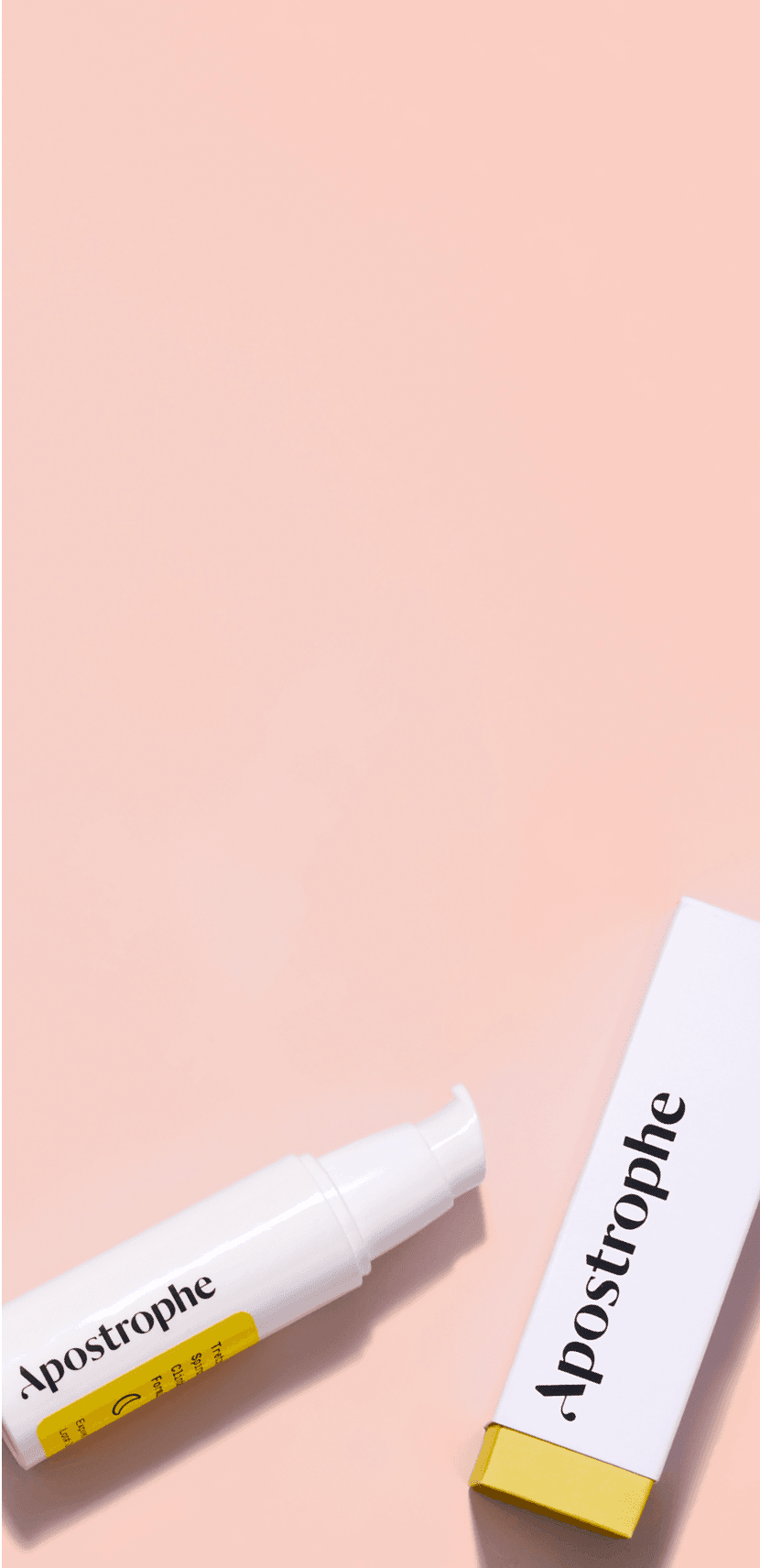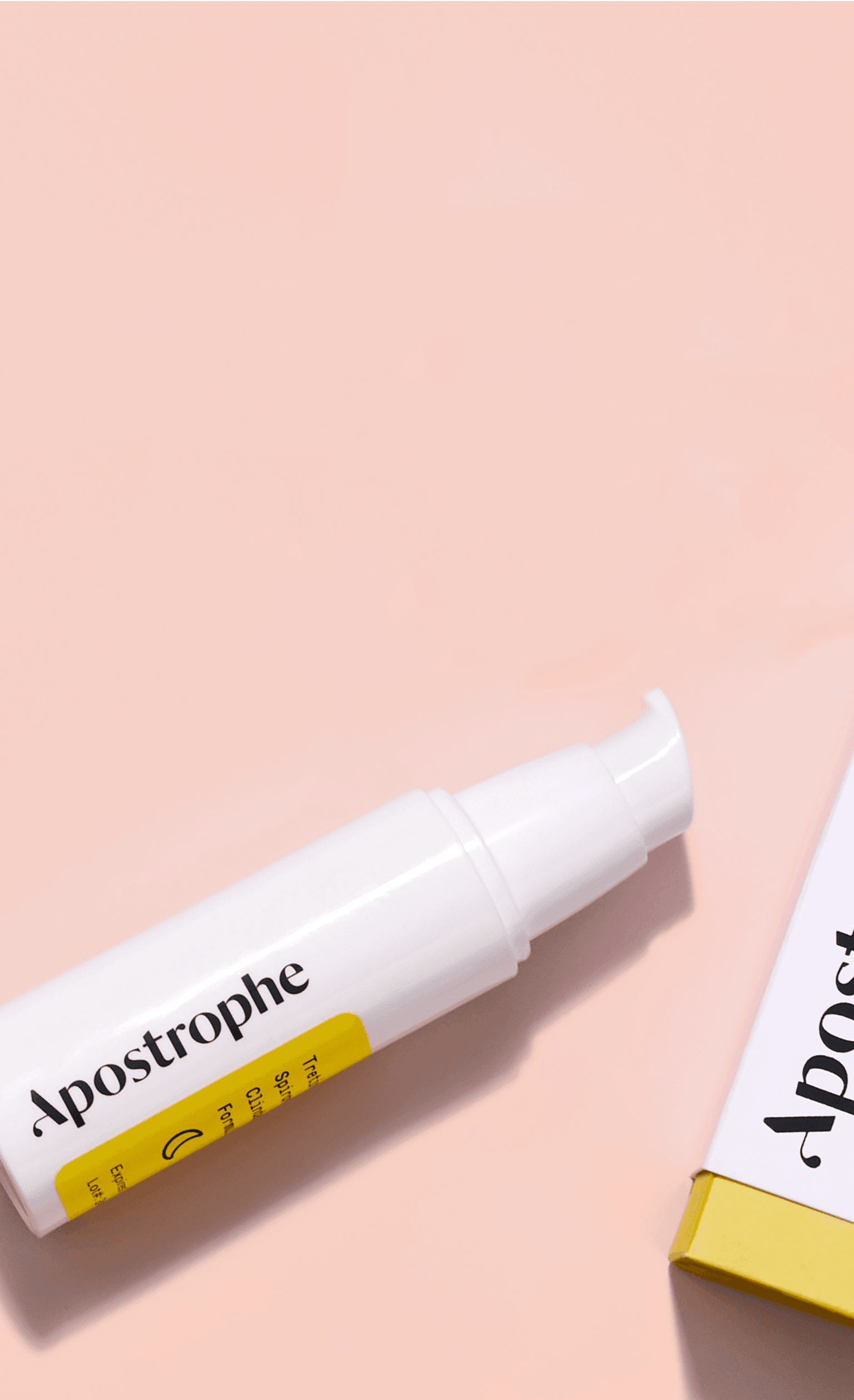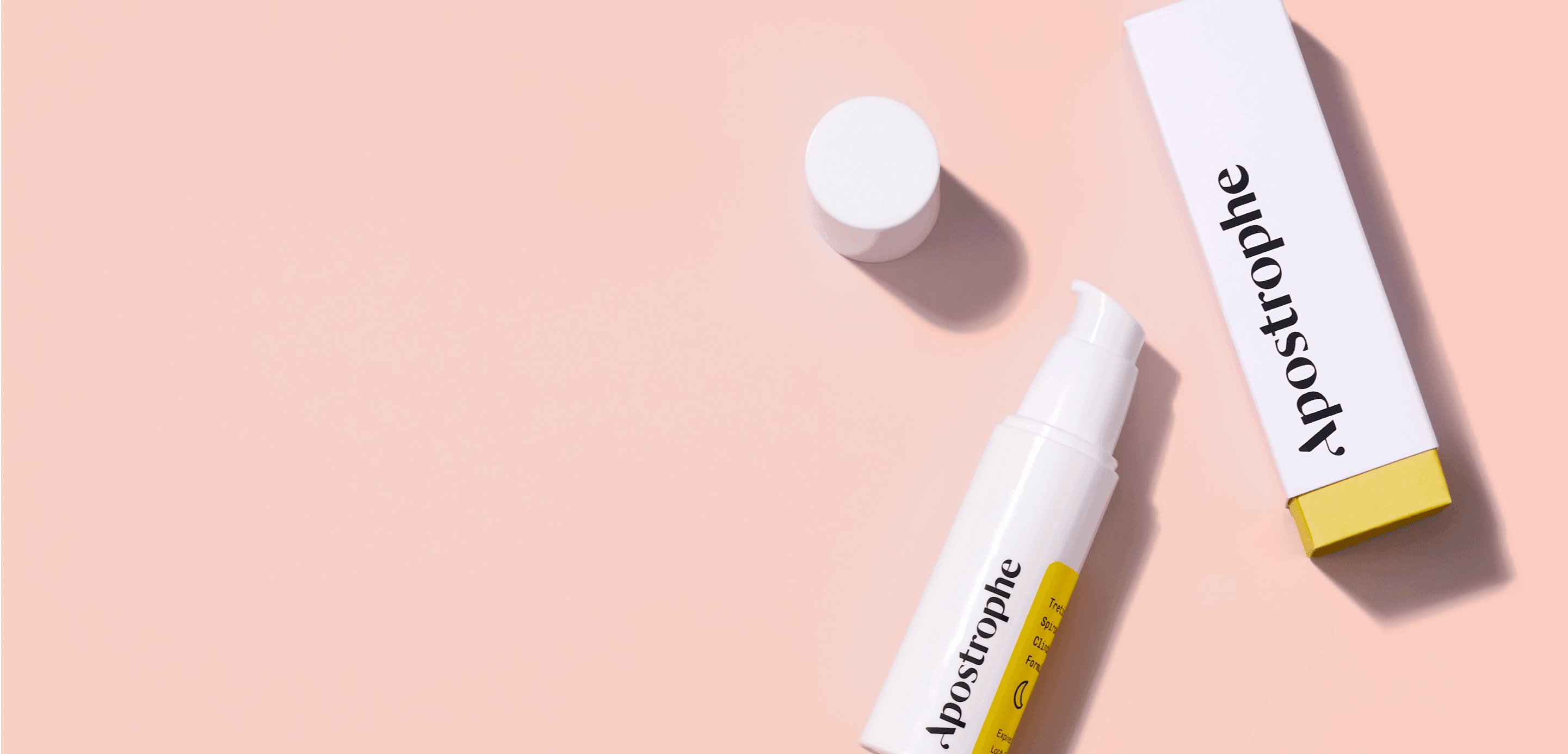


What is Topical Spironolactone?
Topical spironolactone is a medication used to treat acne. Topical spironolactone is particularly effective for treating hormonal acne for everyone, regardless of sex, gender, or sensitivity to oral medications.


What are the benefits of Topical Spironolactone?
Topical spironolactone reduces acne and decreases oily skin. It’s safe to use for all genders (unlike oral spironolactone which is typically not prescribed to cisgender or trans men for hormonal acne.)


Tips for using Topical Spironolactone
Dot one pea-sized drop across your face to evenly distribute, then gently rub in.
Apply your cream at night. UV light breaks down tretinoin, making it less effective.
Use a moisturizer. Apply before or after application to prevent irritation. This won’t make your prescription less effective.
Always wear sunscreen. The tretinoin in your formula increases sun sensitivity especially in the first 6 months of use.
Apply over the entire face. This formula works best to prevent acne and is not meant to be a spot treatment.
Careful around the eyes. It’s best to avoid the eyelids and the corners of your nose and mouth. It can be cautiously applied under the eyes if desired, but always watch for signs of irritation.
Simplify your routine. Stop using brushes and scrubs, toners, serums, masks, salicylic acid, AHA (e.g. glycolic or lactic acid), and retinol while starting your prescription treatment. When you are tolerating the prescription daily without irritation, you can add other treatments back in if desired (with the exception of retinol and salicylic acid -- these are redundant).
Listen to your skin. If your skin becomes dry or irritated, skip a night or two and apply a moisturizer only. If the irritation persists or becomes severe, stop the medication.



What is the difference between topical spironolactone and oral spironolactone for acne?
Oral spironolactone works from the inside out to prevent hormonal acne but some people can’t tolerate the side effects that may come with it. Topical spironolactone can be a good solution that doesn’t cause these same systemic side effects but can help with hormonal causes of acne at the skin level. It can also be used with oral spironolactone to reduce the amount of oral spironolactone needed.
How to treat hormonal acne?
Androgens play a major role in all types of acne in both men and women. Dermatologists often treat hormonal acne in women with oral contraceptive pills or spironolactone which counter the effects of androgens. Due to systemic side effects, men are not eligible for treatment with these oral medications. Spironolactone in a topical form is an innovative treatment that doesn’t have systemic effects and can help acne in both men and women. It can be used in all ranges of acne severity.
Can men use spironolactone?
Oral spironolactone can’t be used by men since it’s disruptive to their hormones. However, men can use topical spironolactone because it has no systemic hormonal side effects and does not affect male hormones.
How to use a spironolactone cream?
- Dot one pea-sized drop across your face to evenly distribute, then gently rub in.
- Apply Mon/Wed/Fri for the first 1-2 weeks.
- If your skin is not getting irritated, begin applying every other night for the next 1-2 weeks. If your skin is still not getting irritated then you can begin applying every night.
How do I get topical spironolactone?
If you want to treat your acne with topical spironolactone, the best place to go is Apostrophe. With Apostrophe, you will receive an online dermatology consultation to make sure topical spironolactone is right for you, and then you will get a custom formulated prescription sent to your home. Your topical spironolactone cream may be formulated with other acne fighting ingredients like tretinoin, clindamycin, or tranexamic acid.
Does topical spironolactone really work for acne?
Topical spironolactone is shown to decrease oil production which can help effectively treat acne. In both men and women topical spironolactone has been shown to improve acne in 95% of study participants in just one month. Topical spironolactone has no systemic side effects on male hormones , so men can safely use topical spironolactone as a helpful adjunctive treatment.
We recommend to use topical spironolactone with other acne fighting treatments like tretinoin, clindamycin. You can also use it with tranexamic acid to help fight dark and red marks left over from breakouts. Combining these ingredients creates a powerful prescription that fights acne in multiple ways.
Side effects of spironolactone cream:
The most common are redness, peeling, and skin sensitivity, so it’s best to ease into treatment. Your skin will adjust to the medication over time.
Oral spironolactone acts as a diuretic and can cause increased urination, headaches, dizziness and high potassium levels in susceptible individuals. Oral spironolactone also has hormonal effects and can cause menstrual spotting, breast tenderness and can potentially cause birth defects.Topical spironolactone is not absorbed into the blood and will not cause these systemic side effects.
- Will topical spironolactone affect my cycle?
- Taking oral spironolactone can affect your cycle leading to menstrual irregularities. Topical spironolactone has local skin effects only and will not affect your cycle.
- Does spironolactone cause hair loss?
- No. Rather, oral spironolactone can be used to treat hair loss on the scalp and decrease excessive hair growth on the face and body. Female pattern hair loss is a type of hair thinning caused by hormonal factors. Hormonal factors can also cause excessive hair growth in a male-pattern distribution on the face or chest in women. Spironolactone is sometimes used to treat these hair disorders. Not enough information is known to determine whether spironolactone would confer these benefits when used topically.
Warnings when taking topical spironolactone:
If you become pregnant while taking this medication, discontinue use immediately and message your provider for an alternative.
Be sure to apply sunscreen every morning with at least SPF 30. This formula can make your skin more sensitive to the sun, especially during the first six months of use. Avoid direct sun exposure, tanning beds, and sun lamps.